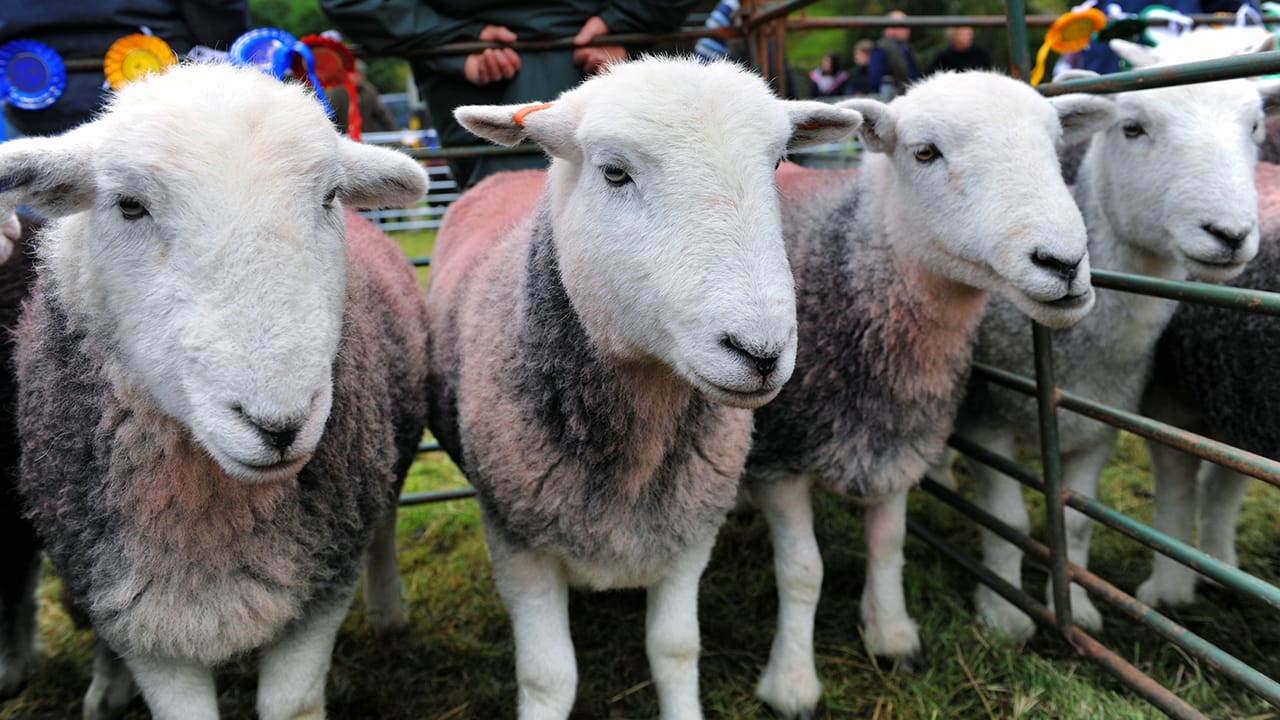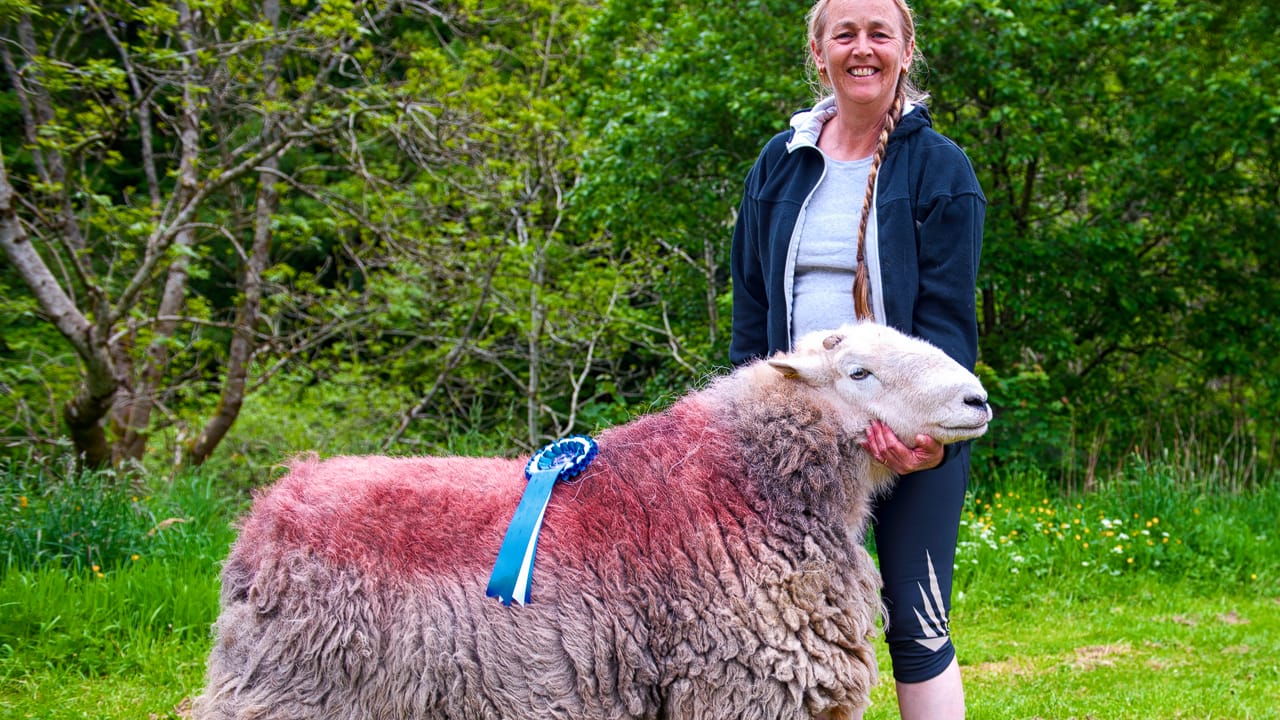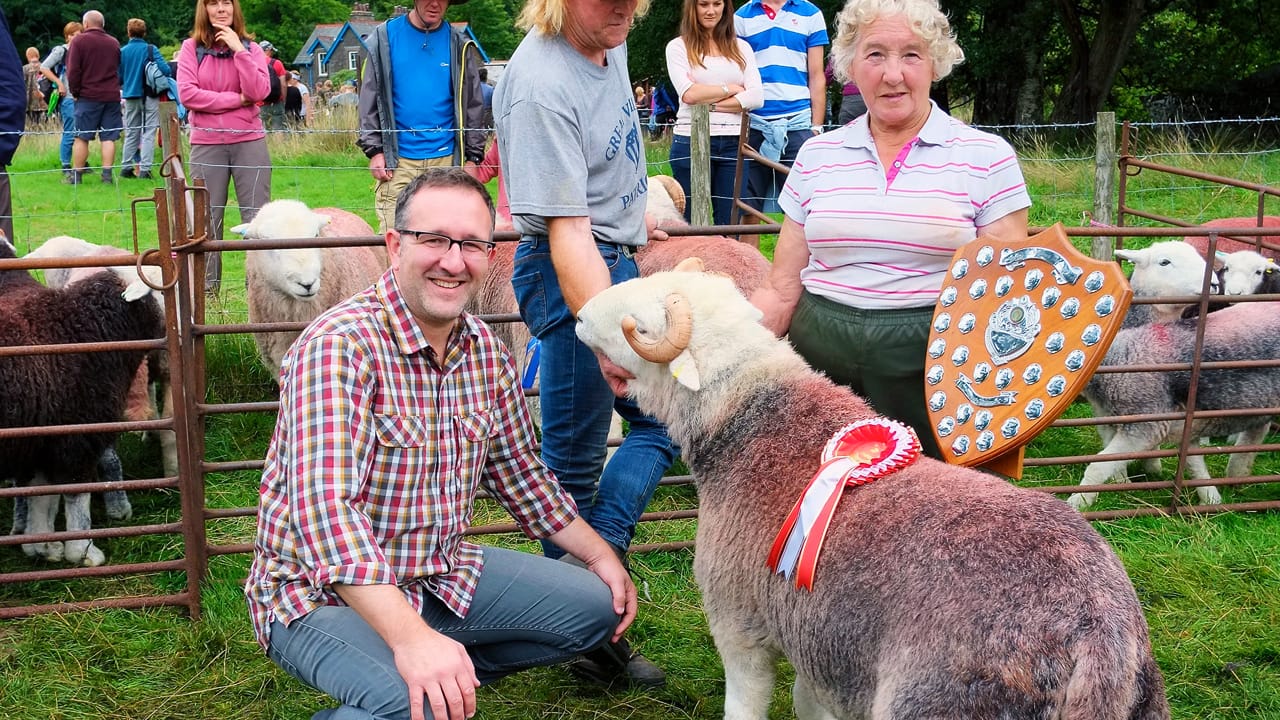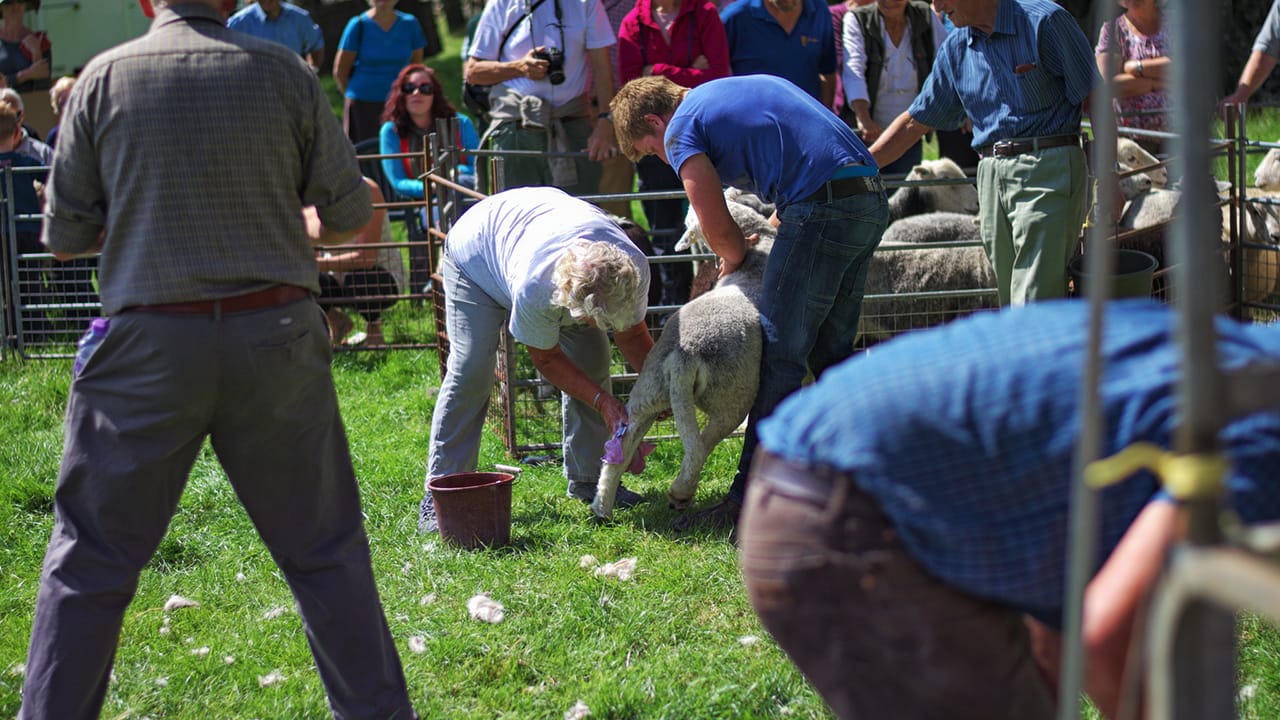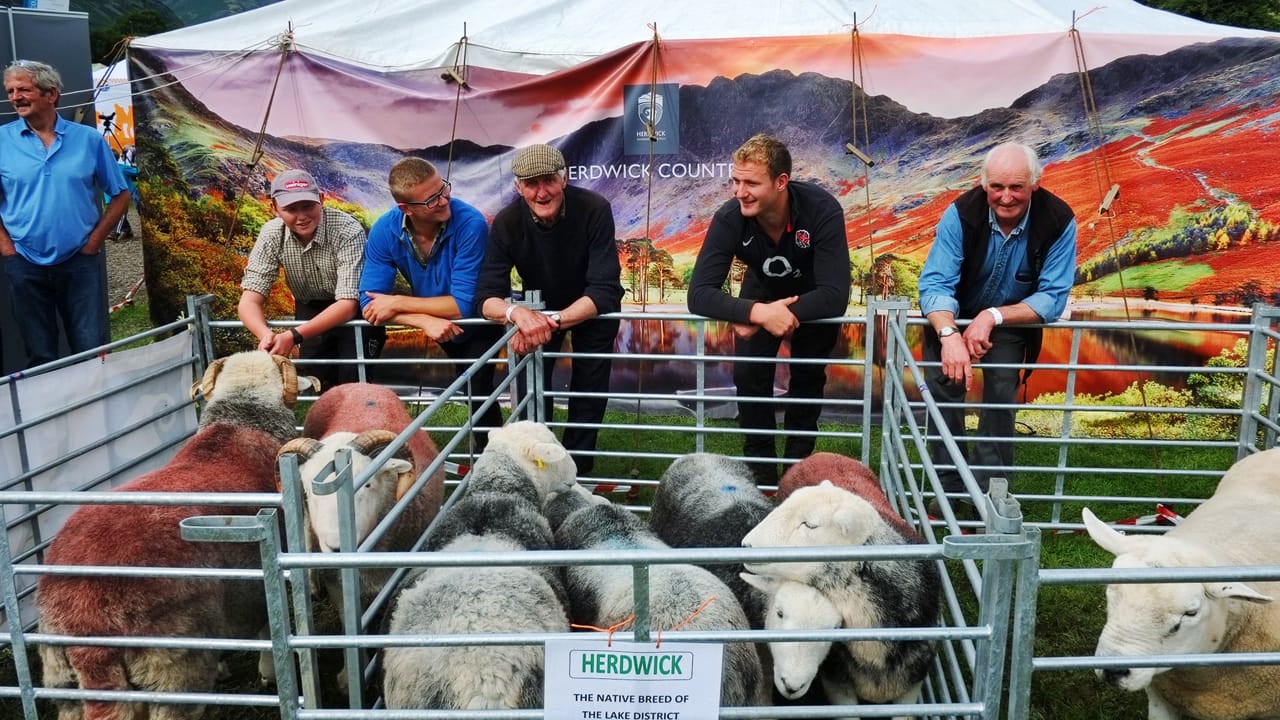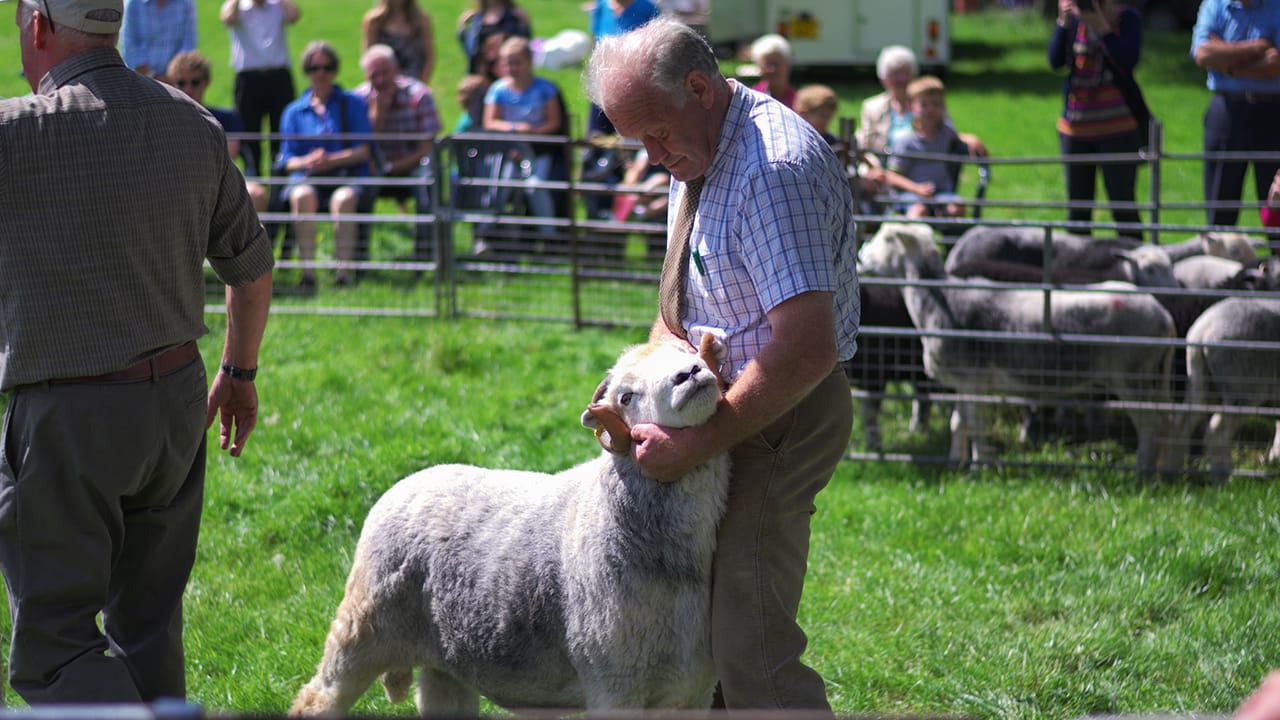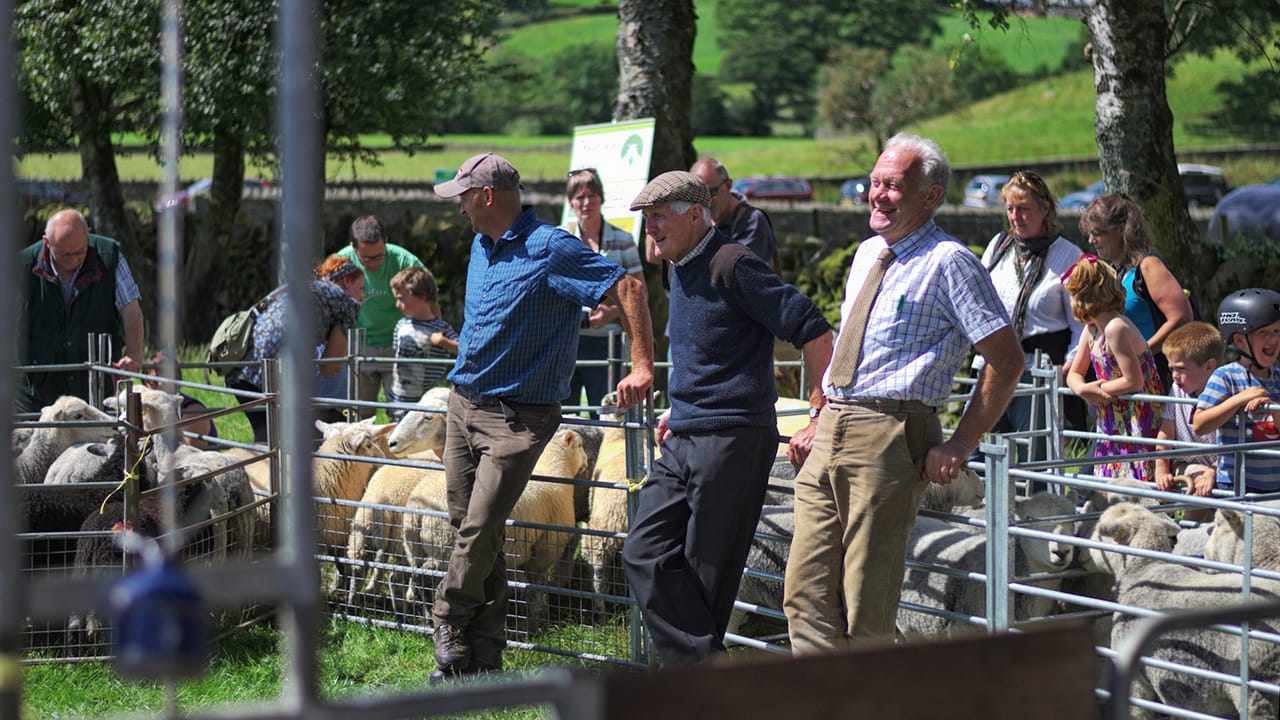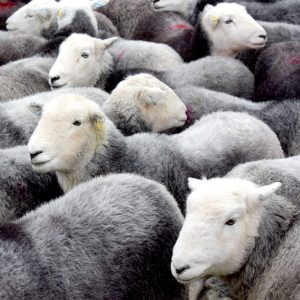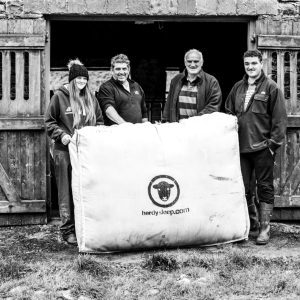Non-farmers stand three deep by the pens at the summer shows, and many of them are trying to understand what farmers are dong, and why. This is an attempt to explain it.
On one level, showing sheep is a complete waste of time, an exercise in vanity; many hours of work resulting in perhaps a first prize of £6. Many hard-nosed commercial farmers would turn their noses up in disgust at such foolishness. Most people, of course, have to lose. On a wet day it can be miserable, cold, and a drag. If your sheep don’t quite make the grade it’s tough to be exposed to the contempt of your peers (most are encouraging and friendly enough, but you know when your sheep are not impressing anyone and aren’t as good as you hoped).
Further reading: Learn All About Herdwick Sheep
But, perhaps worst of all, there are different schools of thought on what makes a great Herdwick. Often, after all your work, you may have to endure the judgement of someone who you think is just plain wrong, and picking the wrong sheep. That sucks, and saying so makes you look like a bad loser.
Why do farmers show sheep?
So why would anyone put themselves through this? What’s the point? Why do farmers do it?
Pride.
And because it’s incredibly difficult, can be immensely satisfying, and can earn you the respect of your peers.
A respected Herdwick breeder once said that when he was young one of the breed’s most notable breeders complimented him, and he “felt 10 ft high”. Lake District Herdwick farmers spend their lives trying to make a living from sheep in the Lake District landscape. They understand that money matters, and that what they do is commercial, with an environmental outcome, but they also represent an ancient landscape culture; a body of ideas, practices, and beliefs.
Everyone has to believe in something and have a focus. Breeding, rearing, showing, and selling mountain sheep is the culture of the Lake District Herdwick farmer. Anyone who has ever tried to breed, rear, and show something to a high level will know that it is addictive. Men and women devote their whole lives to inching closer to an idea (perhaps always unattainable) of perfection.
But with sheep on traditional hill farms it’s actually deeper than that, you are often building on your father’s, or grandfather’s, work, and in fact on everyone that has gone before you (because, remember, the sheep belong to the farms and the land, and have been there for many centuries).
Whether you are lucky enough to inherit an already great flock of sheep, or inherit/rent a substandard flock, your work is to improve them, or at very least hold their quality. Unlike in most of the modern world, individuals don’t matter so much, but are part of a much longer span of time, a chain of people. Surnames and farm names are interchangeable, and lots of farmers get called by their father’s names… the point is simple, the here and now is just a small part of what they are, and what they do. It may seem provincial, narrow minded and not very adventurous to anyone not used to their world, but it is their world, and it created, and still sustains, the Lake District.
Preparing to show sheep
Herdwick farmers start preparing their sheep for shows 2–3 weeks previously. In reality, actually it starts the year before, or many years before, with the breeding and purchasing decisions made. Lots of work happens in the last week, mostly redding and washing, but all sorts of other little cosmetic tweaks. Sheep are like racehorses or athletes; they can’t look at their best all the time, so presenting them in perfect condition, not too fat, not too skinny, with just the right amount of wool, is an art, a complex cumulative mix of judgements and decisions. A great shepherd can have their sheep in their peak condition at just right time, never looking better than the day that matters.
The physical appearance of sheep matters. It makes a massive difference to what they make at auction, because farmers sell most of their sheep for breeding to other farmers, mostly at livestock markets where their value is judged by peers based overwhelmingly on looks.
Scientists, biologists, environmentalists, economists, butchers, geneticists, and other experts don’t get it; they think farmers judge and care about the wrong things! They say farmers should care more about profit, carcass quality, carbon, ecosystem services… But they don’t get what the farmers do, how they do it, and where they culturally have evolved from.
Showing sheep is part of the Lake District culture
To use some very un-farmer-like words, breeding sheep is their culture… their art. Herdwick farmers can spend hours looking at, talking about, and thinking about sheep and what they look like. Sheep are why they get up in the morning, why they put the walls back up, and why they keep going when times are hard and money is tight. Sheep are for them more than walking lumps of wool, bone and meat, and more than simply economic units. They are subject to fashions, and gossip, and their value can be inflated by winning shows and attracting the attention of buyers. Shows put all of this to the test, and in the most public of ways, in front of peers. Fail and your shortcomings are laid bare, succeed and you have shown worth.
The great stockman don’t die, they live on in their sheep, in the bloodlines they create, and in the stories and respect they leave behind. To earn that respect, they’ve got a lot of work to do, a lot of great sheep to breed.
That’s why they show sheep: to slowly try and earn that respect, that status.
Join the conversation in the comments below, or join the flock on our Facebook, Twitter, and Instagram. You can email us too, old school.

